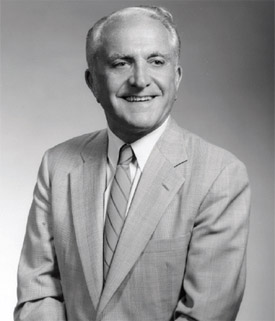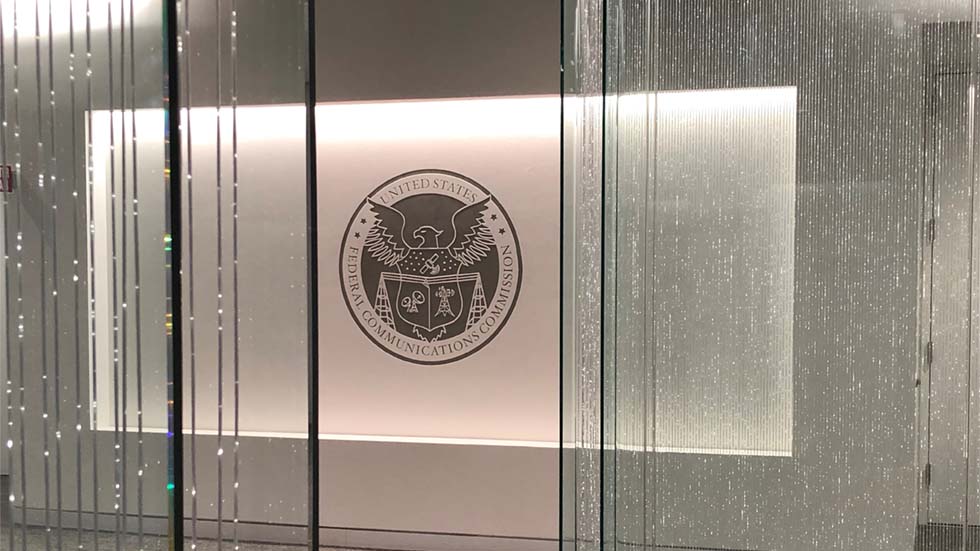Wha’ Happened to the FCC?

You might not have noticed the conspicuous absence of any broadcasters on the Federal Communications Commission, fondly known as the Commish these days. Could this be why it appears that the Commish doesn’t much care about broadcasting anymore?
After all, broadcasting is so twentieth century. We have lotsa new technologies that we might need to put on the wireless bands; so many that we might just need to grab the television broadcast spectrum so we can sell it to the highest new technology bidder.
Never y’all mind that broadcast television is still the only way to reach practically every household in the United States. If it ain’t interactive, it don’t count. Mayhaps we need to appropriate the funds to buy every U.S. citizen a smart phone. Yeah, that’s the ticket!
A GREAT LOSS
In this context we are doubly saddened to hear of the passing of James Quello, a stalwart Commissioner who served from 1974 until he retired in 1998. He was a radio broadcaster by background, and he was a standard-bearer for free, over-the-air television (which Mario knows is anathema to some).
Quello served as Acting Chairman of the Commish for a time in 1994, but he wasn’t just acting (thank you!). He did plenty as Acting Chairman. He was certainly the last broadcaster to serve as Chairman, and he might just have been the last broadcaster to serve on the Commish at all. Mario begins to get a clue as to why the Commish doesn’t care about broadcasting nowadays.
Let’s have a look-see at who is serving on the Commish today, why don’t we?
Chairman Julius Genachowski has a background in the computer/IT world. Uh oh! Aren’t those the guys who want our spectrum? Michael Copps has experience in trade development in the Department of Commerce, on the staff of former Senator Fritz Hollings, and as a professor of U.S. history. Robert McDowell’s background is as a telecommunications industry lobbyist. Mignon Clyburn served on the Public Service Commission of South Carolina and as publisher of a weekly newspaper. Meredith Atwell Baker served as Acting Assistant Secretary of Commerce for Communications and Information, and as Acting Administrator of the National Telecommunications and Information Agency, whose mission, among others, is to advise the president on telecommunications and information policy.
Now Mario does not dispute that all these Commissioners are fine, upstanding, public-minded public servants. But methinks broadcasting still has an important role to play in our 21st century society to entertain, inform, and alert the whole dang U.S. public.
It seems only reasonable that broadcasting should have at least one seat on the Federal Communications Commission, one whose job it is to regulate broadcasting. Not out of existence, Mario hopes.
Mario knows that we, the public, are obsessed with all the latest electronic gadgets and gizmos, and with all the different ways we can get them to communicate with each other (the devices, that is). Mario doesn’t have any issue with that.
NEW MEDIA TAKING OVER?

James Quello Methinks, however, that if the agency that administrates the airwaves and communications has one tiny fault, it might be that it is too willing to contemplate throwing yesterday’s technology in the dumpster in favor of the newest technologies. Sure, these newbies need a seat at the table. But they don’t need the whole table to themselves.
If the good members of the Commish have been keeping up with the news (on their Web-enabled telecommunications devices, for example), they may well have heard that more people, not fewer, are using antennas to receive off-air broadcast signals now that analog television has been shut off. And some of them are even (gasp!) cancelling their cable subscriptions.
From the time that it became apparent that HDTV was an idea whose time was coming in the United States in the 1980s, the beloved Commish did a right fine job of nurturing the creation of a terrific advanced television broadcasting system.
It went way beyond analog HDTV to digital broadcasting. It has packetized transport, so, instead of becoming a dedicated HDTV broadcast system, as was proposed in most of the proponent systems, it became a digital transport system that can also carry SD television, and all kindsa other data too. It’s a sight more versatile than anyone imagined it could be before it happened.
Then recently, everyone involved did a bang-up job of shifting television broadcasting completely over to DTV, shutting off all the analog full-power transmitters and freeing the spectrum they were occupying. Looking back at all that, Mario would say it was quite a heave.
Now, if there were a broadcaster or two on the beloved Commish, we would be less likely, methinks, to be hearing about “higher uses” of the television broadcast spectrum. Uses higher than serving the entire American public with information, news, entertainment, and emergency alerts? Mario thinks not.
Mario Orazio is the pseudonym of a well-known television engineer who wishes to remain anonymous. E-mail him atmorazio@nbmedia.com.
Get the TV Tech Newsletter
The professional video industry's #1 source for news, trends and product and tech information. Sign up below.
